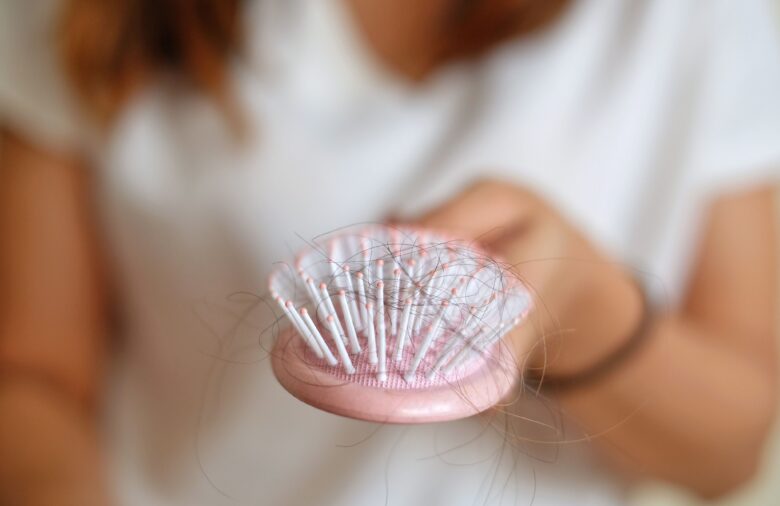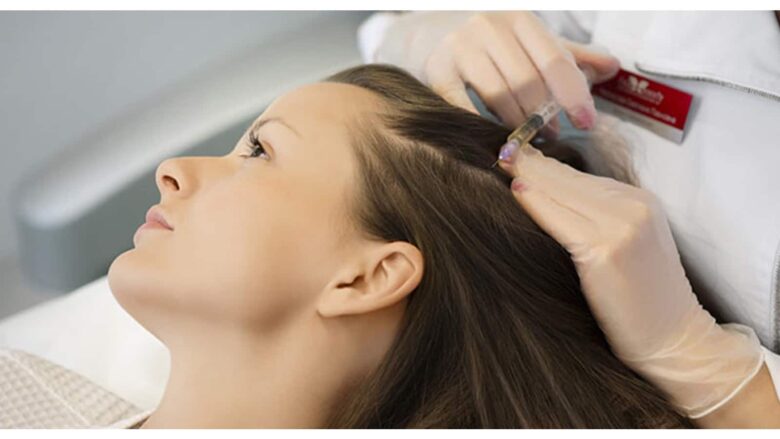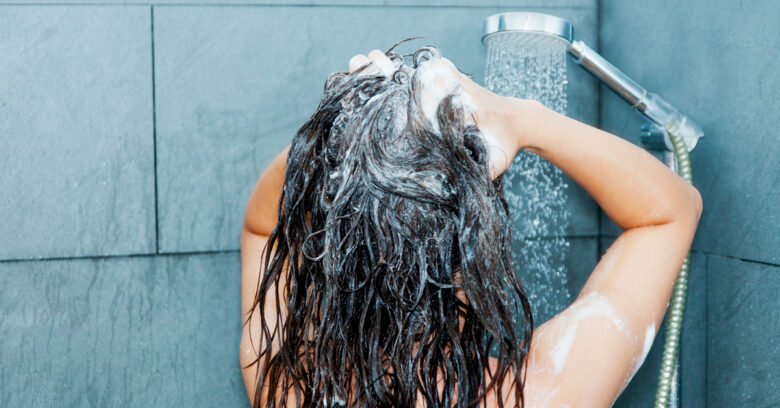Hair loss is an increasingly common problem faced by both men and women. The cause of this phenomenon is most often the modern way of life. No time, poor diet, stress and pollution, as well as aggressive hair products, are just some of the causes of the frequency of hair loss in the last few years.
Along with the increase in the number of those who complain of hair loss, the number of treatments against it is also growing. Most of them promise amazing results, hair that grows like water and a complete stop of hair loss.
All of this makes it really easy to be confused about what works, and what doesn’t. Let’s take a look at some facts.
Not every hair loss is the same…

Before we start going further into the best treatments for managing hair loss, it should be emphasized that not every hair loss is the same. It is common for up to 100 hairs to fall out of our heads every day – natural hair regeneration is a completely normal occurrence. But there are conditions in which hair falls out heavily, and the causes of this can be different.
The most common form of hair loss is androgenic baldness, which occurs in both men and women. It is happening because of increased hypersensitivity of the hair root to the active metabolite of the male sex hormone testosterone (dihydrotestosterone) which inhibits hair in its development and gradually leads to the complete loss of hair and its root.
In men, this type of hair loss leads to different shapes and degrees of baldness, which, depending on genetic predisposition, can begin to develop after the age of eighteen or twenty.
While on the other hand, when it comes to women, it is very often the result of an imbalance of sex hormones in polycystic ovaries which in addition to hair loss is characterized by acne, irregular menstrual cycle, and weight gain. Treating such a condition requires a team assembled of dermatologists, gynecologists, and endocrinologists. The clinical picture of hair loss in women is milder than in men, and in these cases, we are not talking about androgenic baldness but diffuse thinning hair.
So, which treatments give the best results…
There are tons of natural and other solutions which can help in controlling such problem, or removing it completely. Here are 5 best that will surely help and additionally induce normal hair growth.
1. Vitamin therapy

How many times have you heard that vitamins are what you need to have healthy, long, and shiny hair? There is truth in that. You have probably come across tons of shampoos and conditioners enriched with multivitamin complexes or certain vitamins, whose goal is to make hair strong, healthy, shiny, and stimulating its growth.
And did you know that all those shampoos and vitamins in them are useless if they contain harmful chemicals that do more harm than good to your hair in the long run? There’s an alternative to this too, and it’s taking oral vitamins. According to kiierr.com some of these vitamins can seriously improve your scalp circulation, inducing hair growth.
2. Mesotherapy

For decades, this type of therapy has played a major role in the treatment of hair loss as well as in the treatment of thinning hair. The success of this method mostly depends on the cause of hair loss – it achieves excellent results in all people whose follicles are still active.
When it comes to the need to improve hair quality, its power is undeniable. For example, in cases where thinning hair has occurred after childbirth, due to stress, menopause, or poor nutrition, it is fully effective. But this method is not only intended for cases where the condition is already advanced. The benefits of mesotherapy are also visible on tired, lifeless hair that is difficult to style.
3. Change in diet

Diet can affect the health of the whole organism, including hair. It is extremely important what we take into our body. With proper nutrition, we can prevent many conditions and diseases, we can keep the existing disease under control, and we can cure many.
Eat fish, especially bluefin, tuna, salmon, which are rich in omega fatty acids, then eggs, lean meats, soy and other protein foods of non-animal origin. Legumes and cereals, green vegetables, because they are rich in iron and zinc, and B complex vitamins. If you are not suffering from any disease, this will surely induce new hair to grow and control your hair loss.
4. Carboxytherapy
Carboxytherapy is a treatment against hair loss where carbon dioxide gas is injected under the skin with the help of a mesotherapy needle, which aims to stimulate cells and follicles to produce hair. The beneficial effect of carboxytherapy on hair rejuvenation has also been proven. In this way, the follicles receive more nutrients, oxygen and the phase of active growth is prolonged.
5. Choosing the right hair wash products

Shampooing your hair is a daily routine that can help you deal with various hair problems. If you have noticed that your hair is falling out more, then it is the right time to get yourself a good shampoo to help you deal with this. Be sure to choose shampoos without sulfate, silicone, and parabens.
They are by no means good for you and your hair and can only make an already bad situation worse. It’s not that manufacturers intentionally add ingredients that make your hair fall, but there are still synthetic ingredients that can cause scalp inflammation and allergic reactions, which can worsen hair loss and make thin hair dry, brittle, and lifeless.
In the conclusion, keep in mind that the best results and strongest effects are achieved by using shampoo and special hair treatments at the same time. Hair health requires a holistic approach that consists of choosing the right therapy depending on the problem, a healthy diet, the use of dietary supplements as special formulas for hair and scalp growth and health, and proper care.


